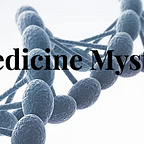Immortal Cells, but Moral Practice?
Henrietta Lacks was an African American mother who visited The Johns Hopkins Hospital, one of the few hospitals that treated African Americans, about vaginal bleeding and came to discover that she had cervical cancer (Johns Hopkins Medicine). As a respected hospital, the Johns Hopkins staff treated her with the best treatment possible. However, her impact on the world of STEM was realized when her cells were sent to Dr. George Grey’s lab where cells with cervical cancer were studied. To Dr. Grey’s great discovery, unlike any cells he has looked before which died immediately, Henrietta Lacks’ cells doubled every 20 to 24 hours, therefore, reproducing endlessly (“The Legacy of Henrietta Lacks”). And this was the birth of HeLa (first two letters of her last and first name), the only immortal cell line.
Even to this day, HeLa cells are a vital part of the STEM field as they are used to study toxins, drugs, hormones, and even viruses (“The Legacy of Henrietta Lacks”). Specifically, her cells were used to discover the effect of the presence of the Human Papilloma Virus (HPV) on cervical cancer and they have even been used to develop the polio vaccine.
All seemed to be good in the medical field until the Lacks family discovered (20 years after her death) that her cells were harvested and sold without their consent. To add to the lack of consensus, Germans mapped out her entire genome and published it and therefore, failed to respect the family’s privacy (“Henrietta Lacks Biography”). However, even though people now look at a patient’s privacy and confidentiality as an essential factor of genomics, there were no legal jurisdictions that explicitly said that samples could not be taken from a patient for research without the person’s consent and knowledge. Even the 1990 Moore v. Regents of the University of California case “upheld the right to commercialize discarded tissue” (“Henrietta Lacks Biography”). There were many questions as to whether they took advantage of Lacks or if her ethnicity played a role in her mistreatment. However, when the National Institutes of Health (NIH) accredited her family on scientific publications for this prolific cell line, the family gradually began to disregard the ethical aspects behind the sequencing of Lacks’ genome and permitted NIH-funded research.
The moral standpoint of Henrietta Lacks’ cells is a debatable one as the privacy issues clash with the “well, they did not harm her” argument. But needless to say, the HeLa cells have been a significant advancement in the medical field and will continue to be a key in the development of many drugs without having to test directly on humans or animals.
Works Cited:
Butanis, Benjamin. The Legacy of Henrietta Lacks. 9 Mar. 2020, www.hopkinsmedicine.org/henriettalacks/.
Biography.com Editors. “Henrietta Lacks Biography.” Biography.com, A&E Networks Television, 2 Sept. 2020, www.biography.com/scientist/henrietta-lacks.
Originally published at https://gdeekshita.wixsite.com on August 25, 2020.
